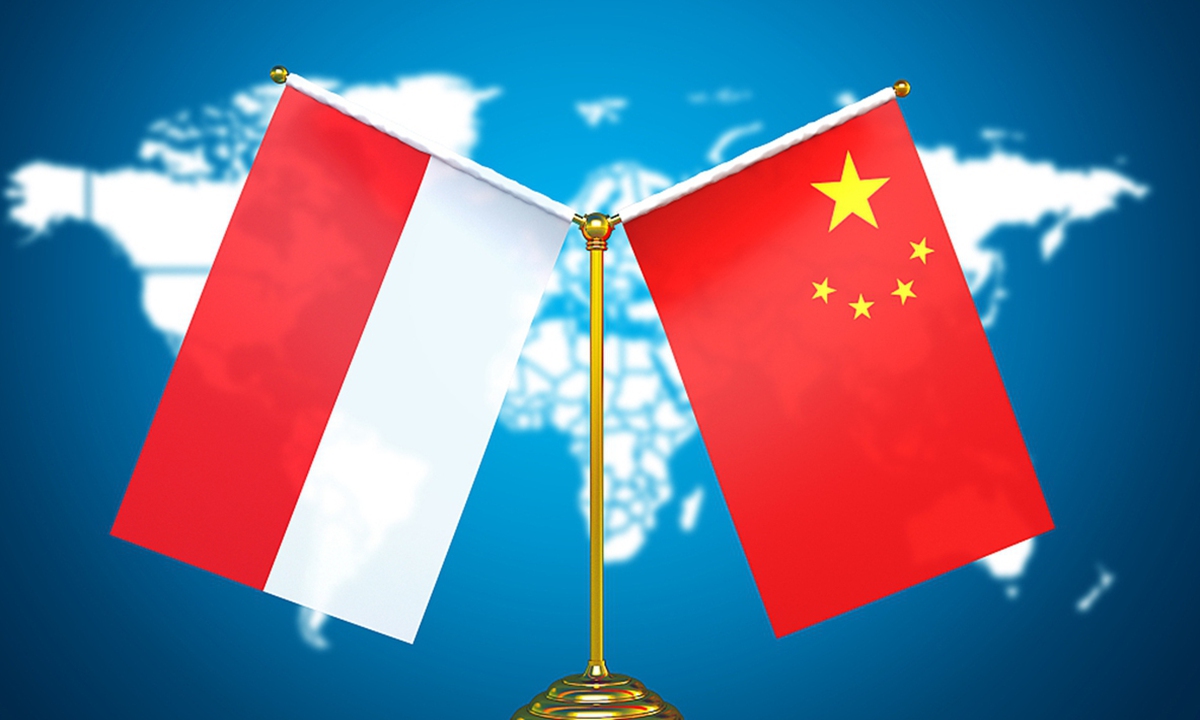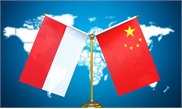
China Indonesia Photo:VCG
Of the 75 years of diplomatic relations, the Indonesia-China Comprehensive Strategic Partnership (ICCSP), established in 2013, perhaps marks the period of the most significant historical leaps, which have left many stunned.
When the ICCSP was inaugurated, the value of bilateral trade stood at $52.45 billion, by 2024 it had nearly tripled to $135.17 billion. China has been Indonesia's largest trading partner since 2005. The China's average investment to Indonesia growth is around 59 percent over the past 10 years.
Of course, the significance of the ICCSP fundamentally goes beyond statistical records. The inception of Strategic Partnership in 2005 was an important foundation for the partnership upgrade eight years later. This era encouraged the revitalization of dialogue and exchange mechanisms in various levels of government and society. Ideological suspicion, political antipathy and social ignorance are slowly being eroded.
No less important is the role of youth - who are equipped with new technological devices that have enabled access to a healthier flow of information and knowledge. The knowledge gap is also narrowed by various scholarship, research and exchange programs, by Chinese language and cultural institutions.
The most prominent characteristics of the ICCSP related to the Belt and Road Initiative include the massive (and much-needed) infrastructure development, value-added investment, as well as collaboration in green and digital transitions.
Other key cooperations are related to human development under the Digital Silk Road program, including: the development of 4G/5G infrastructure, data centers, cloud computing, e-commerce, fintech, AI and Smart Cities. Both countries are currently developing the ASEAN-China AI Center, which focuses on the agricultural sector and Smart City - Nanning's Smart City model is being replicated in Indonesia.
Nevertheless, these projects, if continued to be managed properly and humanely, will have a major impact on the welfare of the wider community - both in terms of public facilities, technology transfer and human development. The key terms are good governance, balance, transparency and sustainability.
Looking back at the development of relations between Indonesia - and ASEAN as a whole - and China, geopolitical shifts have been an unavoidable influencing factor. The geopolitical situation during the early partnership era is marked by China's rapid economic rise and the development of multilateralism - G20, AFCTA and EAS, RCEP, ASEAN-China Strategic Partnership, BRICS, among others. At the same time, the unipolar order and globalization were seriously challenged by the 2008 global financial crisis and by the widespread crisis of confidence in some countries. Eventually, the China-US competition has become the source of tension and uncertainty that has haunted the region.
The latest geopolitical shock came on US' "Liberation Day." Many in the region are convinced that this toxic tactic will be followed by a series of other policies, which primarily target China, and, most likely, will not care about the negative impacts it may bring to other countries.
This may be the toughest test for the ICCSP. The timing of Indonesia's recent entry into BRICS cannot be more opportune. An effective synergy may be needed between ASEAN-based mechanisms and BRICS. Efforts to deepen regional cooperation through the ASEAN+3 mechanism have proven to be useful to prop up Asia's growth during the COVID-19 pandemic and geopolitical shocks from conflicts in Ukraine and Gaza. Such regional endeavors need to be further optimized as the region weathers the new tariff storm.
Other than the 75th anniversary of bilateral relations, 2025 marks the 70th anniversary of the Asia Africa Conference. Guided by the Bandung Spirit, it is high time for the ICCSP to be innovative in further enriching bilateral partnerships, while sustaining multilateral and regional cooperation that will further empower and create collective prosperity for the Global South.
The author is the Director of Strategic Communication and Research at the Gentala Institute, Indonesia. opinion@globaltimes.com.cn

